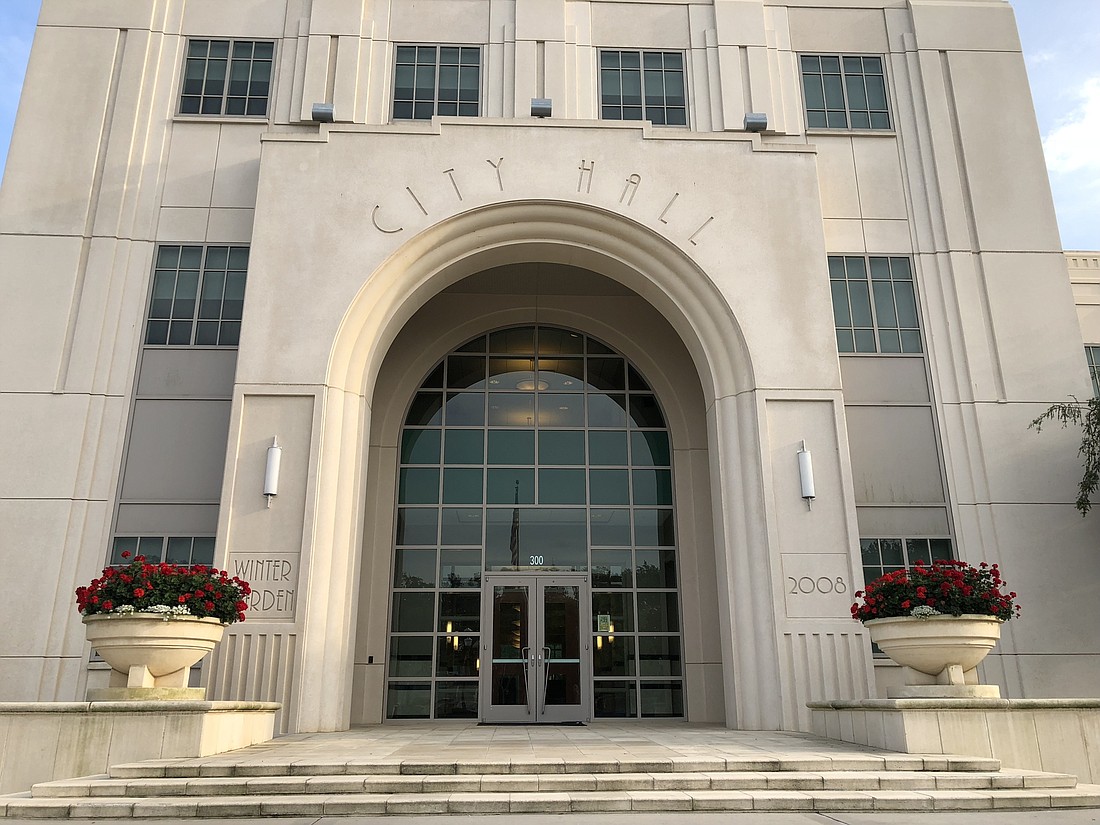- April 22, 2024
-
-
Loading

Loading

Winter Garden leaders adopted a resolution during its May 9 city commission meeting that amends its invocation procedures.
Resolution 19-03, which passed 4-1 with Commissioner Colin Sharman opposing, was drafted in response to the city’s decision to revise its policy following ongoing criticism by Winter Garden resident Joseph Richardson.
For five years, Richardson has requested to lead the invocation at a city commission meeting, and despite being on the invocator list, he had never been selected to lead an invocation.
In response, Richardson strongly urged city commissioners to either switch to a moment of silence or eliminate or revise the city’s invocation policy, which he believed allowed for religious discrimination and prohibited inclusivity.
Despite his suggestions, which he repeatedly expressed during city commission meetings' public forum for several years, Winter Garden City Manager Mike Bollhoefer said the city’s decision to revise its policy was only indirectly influenced by Richardson’s comments.
“Only indirectly – I think the fact that he was going up there and making statements that what we were doing was unconstitutional led other commissioners to think about it and to come to me to ask me questions,” Bollhoefer said. “And then they read the decision from the case themselves, which led us to look at modifying the policy.”
Over the past year, Richardson had also been gathering signatures from around the state and country requesting the city commission to revise its invocation policy. The petition received 2,217 signatures, according to Oviedo resident Jocelyn Williamson, who serves as the director of the Central Florida Freethought Community.
“I, along with other members, have come tonight to present a petition regarding what we perceive is an unconstitutional invocation practice,” Williamson said. “As you know, the 2014 Supreme Court's decision on invocations in Greece v. Galloway determined that all voices in a community must be heard. And in 2014, our organization began to reach out to local governments where each of us was living, including Winter Garden, to offer our voices alongside the community. As a result, we are honored to have offered more than 75 secular invocations … Unfortunately, this has not been the case here in Winter Garden.
“In 2014, a member of our board of directors requested the opportunity to offer an invocation before these meetings," she said. “... You failed to honor his request and to follow a process that would be considered fair and just by a reasonable observer. For five years, you denied him the opportunity to offer his words of inspiration to solemnize these proceedings. So in response to what we perceive as religious discrimination against him, we have collected 2,217 signatures requesting the city to revise its invocation policy to reflect inclusivity and to be truly representative of all members of this community.”
Williamson was joined by several other community members in her request for city commissioners to revise their policy and ensure it is not discriminatory.
“My recommendation is that you would stay the decision until more conversation can be had, even with leaders in the evangelical or protestant community, like myself,” said Chris Ogden, the campus pastor for the First Baptist Church’s Horizon West campus. “I would value the opportunity ... knowing that there are many who feel this policy is discriminatory.”
Bollhoefer said he did not consider the old policy to be discriminatory and, after fully reading the Supreme Court's ruling, determined it was also constitutional.
However, he personally believes the new invocation policy is preferable he said.
“What will happen now is that each commissioner will be given a turn to do the invocation. And during their turn, the commissioner may choose to do a moment of silence, the commissioner could give his turn to someone else, or the commissioner could do a prayer or any kind of invocation they want. It's also spelled out within that resolution – direct language from the Greece v. Galloway ruling – the rules about how to do a prayer to ensure it does not become coercive because the supreme court said it cannot be coercive. So what we'll probably do is keep the prayer to the first five minutes before any official business is conducted, that way if anyone feels offended, they don't have to come until 6:35.”
Bollhoefer said the city changed its policy years ago following the supreme court decision in the Greece v. Galloway case.
“We used to have commissioners do the prayer maybe four or five years ago, and during that time when the Greece V. Galloway decision was made, there was a lot of confusion and a lot of cities changed their policies,” he said. “And we did so as well to fall in line with the other cities, but then we felt we should take another look at it and really read it. And so, after really reading it, we realized we can do all this and have a better policy that satisfies all the different beliefs of the commissioners. Some of our commissioners believe a moment of silence is more appropriate and some believe a prayer is more appropriate. So this policy allows our commissioners to make that choice.”